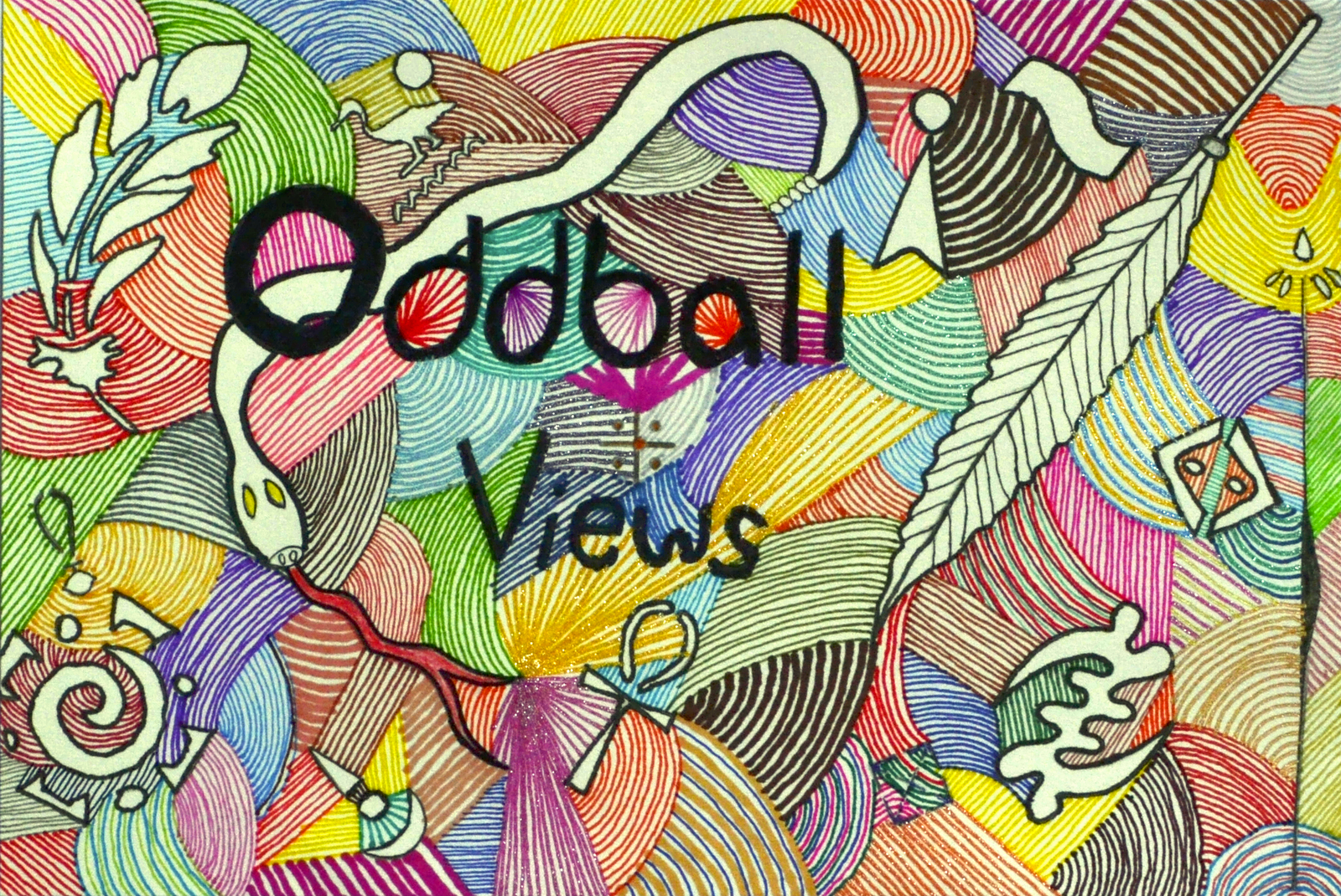Ink, Espresso & Evasion
They met at the Rusty Ledger—a speakeasy nestled beneath an overpass, its entrance hidden by a mural so chaotic it looked like someone vomited a rainbow. The sign outside? “COMMIT TAX FRAUD,” Uncle Sam’s grin warped into a dare. Inside, Edison, a freelance motion-graphics whiz with caffeine in his veins, nursed a flat white. Across from him, Rue, a digital collagist whose studio apartment doubled as an indoor jungle, traced patterns on a napkin.
“I’ve had it,” Edison muttered. “Extensions are one thing. But deadlines with zero safety net? That’s masochism.”
Rue smirked. “Masochism’s for weekends. I need a bailout.”
Soon, they drafted a shaky fellowship: Soren, an animator who filmed existential shorts by night; Juno, an illustrator with neon dreadlocks, convinced the IRS was a sentient horror franchise; Petra, a soft-spoken art director whose “minimalist luxury” client fees barely covered rent; and Milo, a VR designer who’d never filed more than a postcard’s worth of claims.
All had two things in common: they toiled best after midnight, and they were as law-abiding as anyone—until the tax man knocked.
Act I: The Pitch
They gathered under the mural’s strobing lights. Edison laid out his manifesto: “We itemize everything—expensive coffee as ‘creative fuel,’ plants as ‘living installations,’ therapy pets as ‘emotional support units’—then pool our returns into a community microgrant. No one’s rich; just debt-free.”
Rue raised an eyebrow. “Creative fuel, huh? So my third espresso is on the house?”
Act II: The First Draft
They each submitted returns, jamming in absurd deductions—Juno claimed her dreadlocks were “performance extensions,” Petra wrote off designer pillows as “posture research,” Soren invoiced his nightmares as “pre-production storyboards.” They celebrated with a midnight gallery crawl, high-fiving beneath fluorescent sculptures.
Act III: Unanticipated Twists
Two weeks later, Edison’s phone buzzed. “Audit in progress,” it read. Panic erupted. Juno’s dreadlocks were real, but the IRS wanted salon receipts. Petra’s pillows earned her a formal “Request for Documentation.” Milo’s VR headset write-off raised eyebrows in the pentagon. Rue’s therapist-registered ferret? Suddenly it had to be AKC-certified.
By March 20, they had six audit letters, each more menacing than the last. Their “free” microgrant had vanished under legal fees.
Act IV: Descent and Discovery
Desperate, they reconvened at Rusty Ledger, half-expecting federal agents to barge in. Instead, they found Delia—a reclusive CPA turned anti-establishment guru—sketched in blacklight. She’d once laundered money for performance art collectives; now she offered “karmic loopholes.”
Delia whispered about “creative accounting,” but beer-stained ledgers and whispered codewords later, everyone realized her plan would land them in actual jail tours—complimentary behind bars.
They broke into laughter—a shared release. “At least the bars have better acoustics than our loft,” Soren quipped.
Act V: The Aftermath
They faced choices: keep clawing at the edge of fraud, or redefine their creative rebellion. Edison proposed a pop-up clinic: “Artful Audits,” where freelancers exchanged honest deduction hacks for coffee. Rue turned her jungle studio into a tax-safer coworking space. Juno launched a zine titled “IRS: a Love Story,” blending horror tropes with real audit stories. Petra pivoted to ethical branding—clients that understood “empathetic pricing.” Milo coded an open-source tracker for legitimate write-offs, complete with dark-humor tooltips.
Their collective didn’t vanish—they evolved. On April 15, they toasted at Rusty Ledger: half the group owed small penalties, the other half received modest refunds. No dramatic riches, no jailbird ballads—just a messy, half-legal truth.
Epilogue
In the glow of the mural, the Uncle Sam poster lay torn, tongue still lolling but smeared with coffee. The friends drifted into the night, not triumphant tax evaders but wiser, more authentic creators. The grass wasn’t greener; it just looked greener under neon.
And somewhere in the city’s belly, a new poster appears: “STAY HONEST — IT’S FREE!” Some of them still had doubts.
No fairy-tale ending. Just midnight oil, shared playlists, and the odd courtroom sketch. Because in their world, art and life demanded more than perfect numbers—they craved messy, glorious reality.
